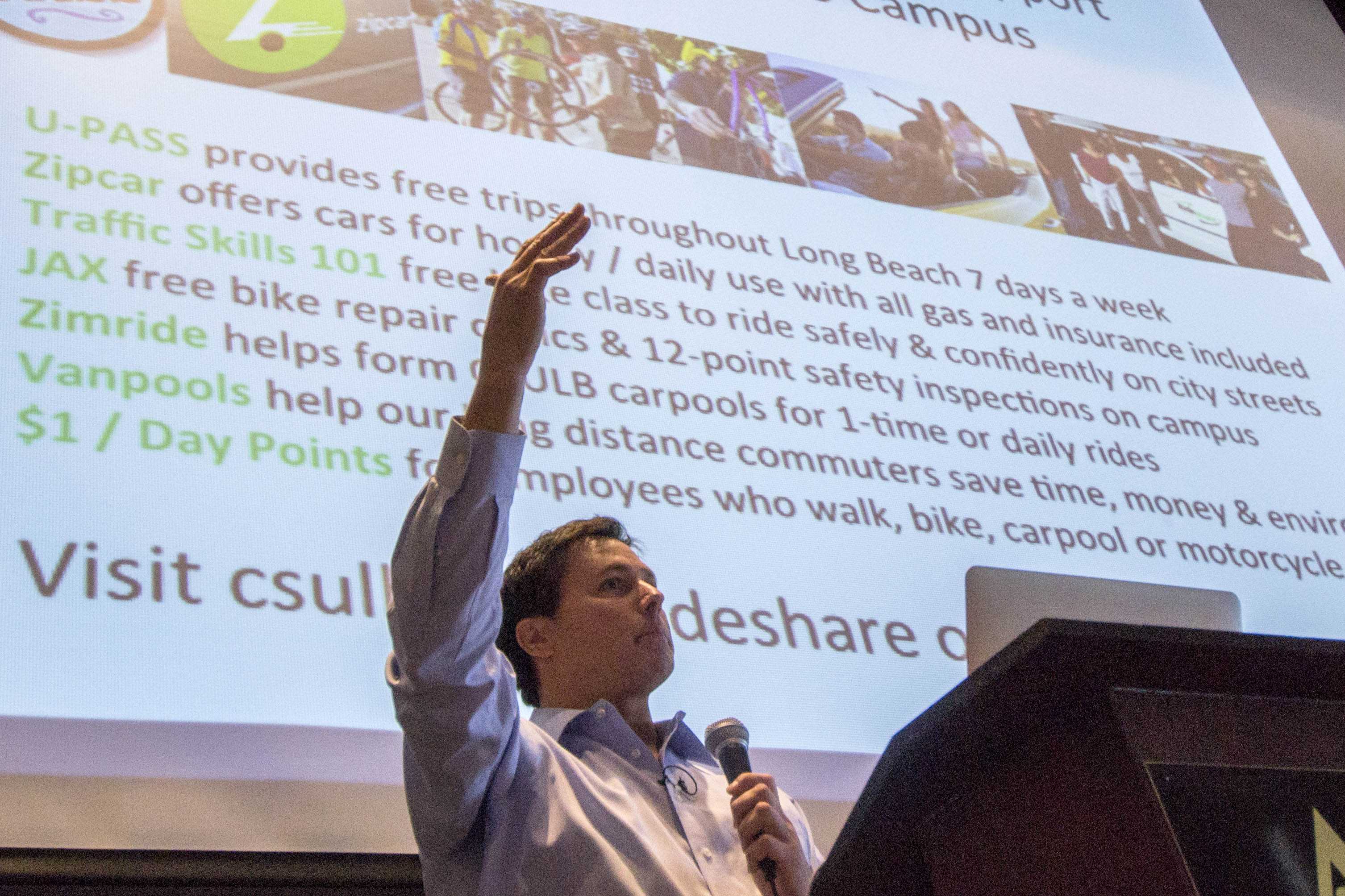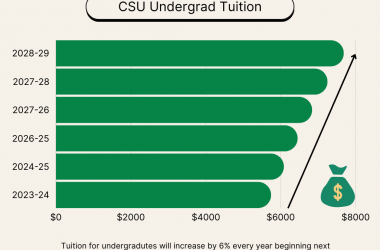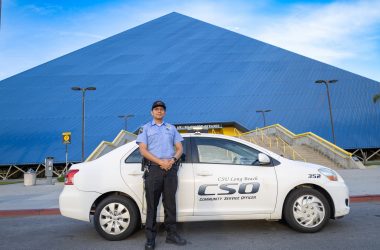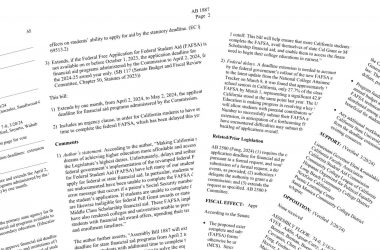A keynote speech from Chris Balish, author of “How to Live Well Without Owning a Car: Save Money, Breathe Easier, and Get More Mileage Out of Life,” kicked off the Rideshare Week launch on Monday.
“I really wanted to bring him to our campus because he’s such an influential speaker, and
his message is so relevant to our campus community,” Sustainable Transportation Program Coordinator Elissa Thomas said.
Balish said he has been living the car-free lifestyle for ten years, since he moved to Los Angeles from St.Louis, Missouri, in 2006.
He said he ditched his car to live a green lifestyle because he wanted to help the
environment, burn less fossil fuel and save a lot of money by not owning a car.
“I want people to ride bikes because it makes the air cleaner; people will have healthier
bodies, reduce fossil fuel and consumption,” Balish said.
A small audience in the University Student Union Ballroom listened attentively to Balish’s animated speech about how sustainable ways of commuting can reduce stress, improve
the environment and other subjects.
Balish said what made him want to come to Cal State University Long Beach were the stories he had heard about CSULB’s reputation as being a great university for alternative transportation and bike commuting.
“I always wanted to come here, ride my bike around campus and explore for myself,” Balish said.
Thomas said she encourages living in a green environment and tries to get more students and faculty out of their cars by educating them about alternative ways to get to campus such as biking, carpooling, vanpooling and using public transit.
Thomas said she feels CSULB has made a committed plan to achieve climate neutrality, and the greatest challenge in achieving this goal is reducing emissions from transportation.
“When you drive a car, the engine burns fuel, which creates carbon dioxide (CO2) and
contributes to global warming,” Thomas said. “The most effective way to reduce CO2 emissions is to reduce fossil fuel consumption.”
Knowing that CSULB is a commuter campus, she added that an overwhelming
36,000 metric tons of campus CO2 emissions are from commutes to campus.
The main point of the sustainable transportation event was to offer the campus community
information and to encourage the campus to consider alternative means for getting to and from campus.
“Students should care about sustainable transportation because our transportation choices
have such a powerful effect on our environment,” Thomas said.
Thomas also said she hopes people will be encouraged to give sustainable transportation a try because it could help them save money and reduce stress.
According to Thomas, over 5 percent of the campus community commutes to campus by bicycle, over 500 students are members of the Zimride carpool ride-match program and nearly 1,000 Zipcar members are registered in the on-campus, car-sharing program.
Thomas said that out of all the sustainable programs on campus, students use the Long Beach Transit U-Pass Tap Card program the most; the U-Pass Tap Card program was made possible by a CSULB-funded agreement with Long Beach Transit.
Actively enrolled CSULB students, along with faculty/staff are provided free boarding on all Long Beach Transit buses through this program. Thomas said over 7,500 students participate in the U-Pass Tap Card program.




